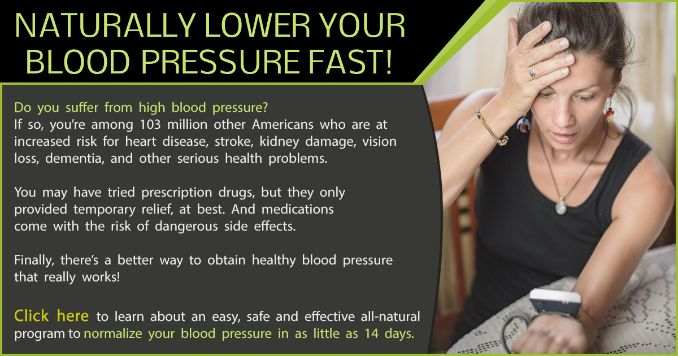
For many of us, the holidays are stressful. In a survey by the American Psychological Association, 38 percent of respondents said their stress levels increased during the holiday months.
The investment firm Principal Financial Group found that more than half of people (53 percent) felt financially stressed by holiday spending. In a Healthline survey, 62 percent of respondents described their stress level as “very or somewhat” elevated during the holidays, with only 10 percent saying they were not stressed out by the season.
The holidays are supposed to be about love, joy, and peace, but many of us struggle to make it through without tearing our hair out. Reducing your stress can not only make the holidays more enjoyable, but it might also save your life.
Don’t Fall Victim to a ‘Holiday Heart Attack’
You know that too much stress isn’t good for your health, but some research suggests it could be deadly during the holidays.
In a study by the University of California, scientists reported that the number of heat-related deaths in the United States increased by 5 percent during the December and New Year holidays. The danger was so concerning that they called the Christmas and New Year’s holidays “a risk factor for cardiac and noncardiac mortality.”
In another study involving more than 22,000 people, researchers discovered there was a significant increase in daily heart failure admissions to the hospital after Christmas Day when compared to the rest of the year. They speculated that overeating on holidays along with the “associated emotional stressors” could be among the factors responsible for the results.
Heart problems are so common during the holidays that the American Heart Association (AHA) calls them “holiday heart attacks.” In 1999, one of the first studies marking the uptick showed up in the journal Circulation.
Data Shows Possible Holiday-related Connection
Researchers wanted to know when heart attacks were most likely to occur, so they analyzed death certificate data from Los Angeles County from 1985 to 1996. Results showed that the number of deaths was highest in December and January, with the lowest rates in June, July, August, and September.
Mortality increased as temperature decreased, but the scientists noted that during December and January, deaths peaked around the holiday season.
“Although cooler temperatures may play a role,” the scientists wrote, “other factors such as … the stress of the holidays might also contribute to excess deaths during these peak times.”
Later research involving 53 million death records across 26 years from across the U.S. confirmed that more cardiac deaths occurred on December 25 than any other day of the year, followed by December 26 and January 1.
Researchers don’t know exactly why deaths are more common during the holiday season, but they believe that stress from family interactions, strained finances, travel, and entertaining may be significant factors.
Why would stress be connected to holiday heart attacks?
How Stress May Increase Risk of Heart Attack
According to the AHA, excessive stress can contribute to unhealthy behaviors that damage the cardiovascular system. These may include eating too much, eating sugary and fatty foods, drinking too much, smoking or failing to get enough exercise.
However, one of the primary ways stress affects the heart is by contributing to high blood pressure. When you’re under stress, the body releases stress hormones like adrenaline and cortisol. These prepare the body for the “fight or flight” reaction by making the heart beat faster and constricting the blood vessels to get more blood to the core of the body.
These actions create a temporary increase in blood pressure. Under ideal circumstances, once the stress goes away, the hormones dissipate, and everything calms down. However, in our modern world, we often experience many stressful events throughout the day that can keep the body’s hormones active and the stress response ongoing.
Although scientists still aren’t sure if chronic stress results in hypertension, there is evidence to suggest that it can promote its development. In a 1998 study, researchers stated, “Stress can cause hypertension through repeated blood pressure elevations as well as by stimulation of the nervous system to produce large amounts of vasoconstricting [blood vessel narrowing] hormones that increase blood pressure.”
Other Factors Amplify Risk
They added that when one risk factor, such as overweight or obesity, is paired with other stress-producing factors, like a difficult job or family strain, the effect on blood pressure “is multiplied.”
The Mayo Clinic also states that the hormones produced when we’re emotionally stressed can damage the arteries over time, leading to symptoms like high blood pressure. Even temporary spikes in blood pressure, if they are frequent, can damage the blood vessels, heart and kidneys just like long-term high blood pressure can.
That means that if we want to stay healthy through the holidays and beyond, we’re wise to do what we can to lower stress and maintain a healthy blood pressure level.
Tips for Keeping Your Blood Pressure in Check
Blood pressure rises with stress, so anything you can do to reduce your holiday stress will help keep your blood pressure in a healthy range.
First, start with the basics:
- Medications: If you’re already taking blood pressure medications, get refills in advance so that you don’t have to hassle during the holiday rush and make sure you continue to take them regularly.
- Exercise: Maintain your regular exercise routine, but don’t start some new “preholiday” workout now. It will only add stress to an already stressful situation, which could hurt you more than help you. Stick with your daily walks, jogs, bike rides or gym routines and focus on your health and well-being rather than your weight or fitness levels.
- Don’t overindulge: The holidays are all about treats, so you don’t need to deprive yourself, but at the same time keep your health in mind. Stick with your daily fruit and vegetable intakes, get enough fiber and protein and be careful not to ingest too much sugar, either in sweets or alcoholic drinks. Overeating stresses your body, so enjoy in moderation.
- Listen to your body: If something feels strange, pay attention. Don’t deprive yourself or a family member of medical treatment if you need it.
It’s unrealistic to believe you can get through the holidays without experiencing stress. The key is to learn to cope with it. Try these seven techniques.
1. Take Regular Breaks
Start when you first wake up. Rather than running to complete your to-do list, take five minutes to relax. Take deep breaths and imagine yourself in your favorite place. Allow yourself to just “be” for a bit before you tackle the day.
Then, take other breaks regularly throughout your day, such as during your lunch hour, after work and before bed. Give yourself time to journal, meditate or take a walk. Pencil in an appointment with yourself if you need to. These little breaks can mean the difference between feeling super stressed and feeling calm.
2. Prioritize Sleep
Sleep is one of the best ways the body copes with stress, but if you aren’t getting enough of it during the holidays, your nerves are going to wear thin. Prioritize your sleep to be sure you’re getting seven to eight hours per night:
- Go to bed and get up at the same time every day.
- Practice a before-bed ritual that includes quiet, calming activities.
- Keep all technological gadgets, including televisions, computers, and cellphones, out of the bedroom.
- If your mind is racing, try calming it down with lemon balm or passionflower tea, a bit of lavender on a cotton ball under your pillow or some kava kava before bed to reduce anxiety.
3. Shop Early
One of the major sources of stress at the holidays surrounds gift-giving. It can be expensive, time-consuming and overwhelming, particularly if you wait too long and then descend on the stores when all the other last-minute shoppers are flooding the aisles in a frenzy.
Prepare ahead of time by going early in December, preferably on a weekday if you can. Some people take a day off of work for this purpose alone, saying it helps reduce stress when the stores are less crowded. Take a list that includes everyone — family, friends, co-workers, neighbors and anyone else you may need to remember — and then don’t forget to hit the sales and take along your coupons.
Online shopping is also best done early on, so you don’t have to worry about last-minute shipping rushes and overage charges.
4. Choose Events Carefully
Many families find themselves going from one event to the other over the holidays, to the point that they don’t enjoy any of them anymore. Be selective about what you choose to do. You don’t have to attend the Nutcracker, the Santa parade, the holiday ice show, your kids’ Christmas programs, the office party, the neighborhood party, your in-laws’ dinner and more.
Choose the ones you know matter most to you and your family, then let some of the others go. A quiet evening or two at home during the holiday season may be just what you need to keep your stress levels under control.
5. Spend Time With Happy People
Emotions are contagious among humans, which means if you’re spending all your time around others who are stressed out, you’re more likely to feel stressed too. Make time for those people who lift you up — the sister who makes you laugh or the buddy who helps you take things more lightly.
Head out to the comedy club with your pals or take your daughter out of school for the day and spend some quality time together. Studies show that being around those we care about can help reduce stress, so take control of at least a few of your holiday interactions so that they lessen, rather than increase, your stress.
6. Do a Digital Detox
Studies show that the more time we spend on social media, the more stressed and anxious we’re likely to feel. That can be exacerbated during the holidays when it seems everyone else is having perfect family experiences that far overshadow yours.
No one’s life is perfect, but we all put on our best faces online. You can cut back the stress by deciding to stay off social media and the Internet for at least a few days during the holidays. Choose one day per week in December and make a pact with your family to leave the cellphones off on the big day.
7. Listen to Music
Music has a magical way of calming us down. It “soothes the savage beast,” as they say, relaxing our bodies and often improving our emotions. In a 2013 study, scientists found that listening to music had a direct effect on cortisol response, lowering the stress hormone and helping people return to a relaxed state faster after going through a stressful experience.
The nice thing about music is that you can use it anywhere, anytime you need it. Choose a relaxing tune you enjoy, plug in your headphones and give yourself a momentary escape. If you need to truly relax or even sleep, pick a song that has around 60 beats per minute. Research shows this tempo helps slow brainwaves and induce relaxation.
For help keeping your blood pressure in check, make sure to get your 14-Day Healthy Blood Pressure Quick Start Program, here!








